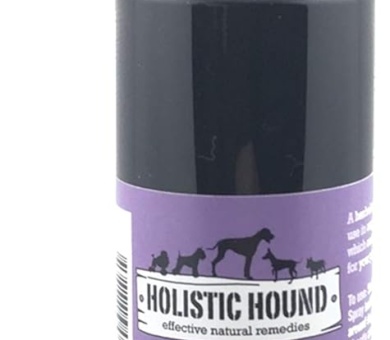Omega-3s for Dogs: Are You Choosing the Right Source in 2025?
Navigating Quality and Innovation in Canine Supplements
As pet owners increasingly prioritize their dogs’ health, Omega-3 fatty acids have become a cornerstone of canine wellness. By 2025, the market is flooded with options, but not all supplements are created equal. This guide dives into how to select the best Omega-3 source for your dog, emphasizing quality, efficacy, and sustainability.
Why Omega-3s Are Essential for Dogs
Omega-3s, particularly EPA (eicosapentaenoic acid) and DHA (docosahexaenoic acid), play critical roles in:
- Joint Health: Reducing inflammation in arthritic dogs.
- Skin & Coat: Alleviating dryness and allergies.
- Cognitive Function: Supporting brain health, especially in aging pets.
- Heart Health: Promoting cardiovascular efficiency.
Dogs cannot produce these fats internally, making supplementation vital. However, the source and quality of Omega-3s significantly impact their benefits.
Sources of Omega-3s in 2025: Pros and Cons
-
Fish Oil
- Pros: Rich in EPA/DHA; widely available.
- Cons: Risk of contaminants (mercury, PCBs); sustainability concerns.
- 2025 Innovation: Brands like Nordic Naturals Pet and VetriScience now use molecular distillation for purity and partner with fisheries certified by the Marine Stewardship Council (MSC).
-
Algae Oil
- Pros: Sustainable, plant-based, high in DHA; ideal for dogs with seafood allergies.
- Cons: Typically lower in EPA unless fortified.
- 2025 Trend: Companies like Trusted Paws and Zesty Paws offer algae-based blends with added EPA from lab-cultured microalgae, boosting potency.
-
Krill Oil
- Pros: Contains astaxanthin (an antioxidant); highly bioavailable.
- Cons: Overharvesting concerns; pricier.
- Sustainability Focus: Brands like Krill Arctic Pets now source from Antarctic krill fisheries adhering to Commission for the Conservation of Antarctic Marine Living Resources (CCAMLR) guidelines.
- Plant-Based (Flaxseed, Chia)
- Pros: Vegan-friendly; rich in ALA (alpha-linolenic acid).
- Cons: Dogs poorly convert ALA to EPA/DHA (<10% efficiency).
- 2025 Advice: Use only as a secondary source alongside marine oils.
Quality Considerations: What to Look For
- Purity: Opt for supplements tested for heavy metals, PCBs, and oxidation. Look for IFOS (International Fish Oil Standards) or GOED (Global Organization for EPA and DHA) certifications.
- Bioavailability: Triglyceride-form fish oils and emulsified liquids (e.g., Grizzly Salmon Oil) enhance absorption.
- Sustainability: Certifications like MSC or Friend of the Sea indicate eco-friendly practices.
- Transparency: Brands should disclose sourcing (e.g., wild-caught vs. farmed fish) and EPA/DHA concentrations per serving.
Top-Rated Omega-3 Supplements for Dogs in 2025
- Nordic Naturals Omega-3 Pet
- Sustainably sourced sardine/anchovy oil; IFOS-certified.
- Zesty Paws Algae Omega
- Algae-derived DHA/EPA; fortified with organic turmeric.
- VetriScience Laboratories Omega-3
- High-potency triglyceride form; vet-recommended.
- Krill Arctic Pets Pure Antarctic Krill Oil
- Astaxanthin-rich; CCAMLR-compliant harvesting.
Future Trends in Canine Omega-3 Supplements
- Lab-Grown Omega-3s: Companies like Nutrigen are pioneering fermentation-derived EPA/DHA, bypassing marine ecosystems entirely.
- Personalized Supplements: Startups like Pawtonomy offer tailored blends based on breed, age, and health screenings.
- Enhanced Delivery Systems: Nano-emulsified oils (e.g., PetNova) for faster absorption and lower dosing volumes.
How to Choose the Right Supplement
- Check Labels: Ensure EPA/DHA levels meet your dog’s needs (consult your vet for dosage).
- Avoid Fillers: Steer clear of artificial preservatives or unnamed “fish blends.”
- Storage: Choose dark bottles or capsules to prevent oxidation; refrigerate after opening.
- Species-Specific Formulas: Human supplements may contain unsafe additives (e.g., xylitol).
The Bottom Line
In 2025, quality Omega-3 supplements balance efficacy, safety, and environmental impact. Prioritize marine-sourced EPA/DHA with third-party certifications, and stay informed about innovations like algae oil and lab-grown alternatives. Always consult your veterinarian to tailor choices to your dog’s unique needs.
By making informed decisions, you’re not just boosting your dog’s health—you’re supporting a sustainable future for all. 🐾









